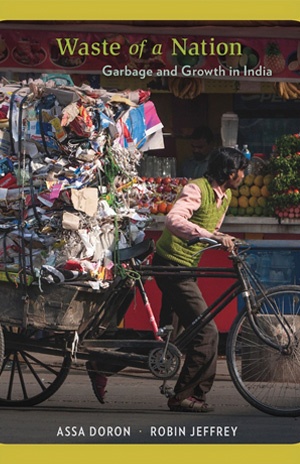Social scientists Assa Doron and Robin Jeffrey, in their book The Waste of a Nation – Garbage and Growth in India, published by Harvard University Press, April 2018, go beyond the waste pile that is so common in India to the people who try to manage it. They demand policies that go beyond the environment to encompass empathy. Swachh Bharat should go beyond clean India to a clean and humane India.
The authors show, through field research the abject conditions with which people who segregate waste live in. They deplore political class for allowing the mafia to rule India’s waste resulting in inefficient, often hurting citizens’ health.
Author and MP Shashi Tharoor, notes that the authors have “crafted an engaging commentary on India’s struggles with waste management.”
The key is to empower civic bodies with skilled professionals to do their duty. Currently they are underfunded and subject to political and bureaucratic manipulation.
In 2013, China signed up to a ‘circular economy’ model devoted to recycling as much as possible. This is one approach to sustainability. But India has, as Waste of a Nation emphasizes, other strengths that could unite municipalities and individuals. One is its 40,000 civic organizations and action groups that could catalyze coalitions between kabaadiwalas, professionals, scientists, engineers, ethical businesses and, importantly, politicians.
Waste of a Nation offers an anthropological and historical account of India’s complex relationship with garbage. But if a clean new India is to emerge as a model for other parts of the world, a “binding morality” that reaches beyond the current environmental crisis will be required.
Empathy for marginalized underclasses—Dalits, poor Muslims, landless migrants—who live, almost invisibly, amid waste produced predominantly for the comfort of the better-off will be the critical element in India’s relationship with waste. Solutions will arise at the intersection of the traditional and the cutting edge, policy and practice, science and spirituality.










